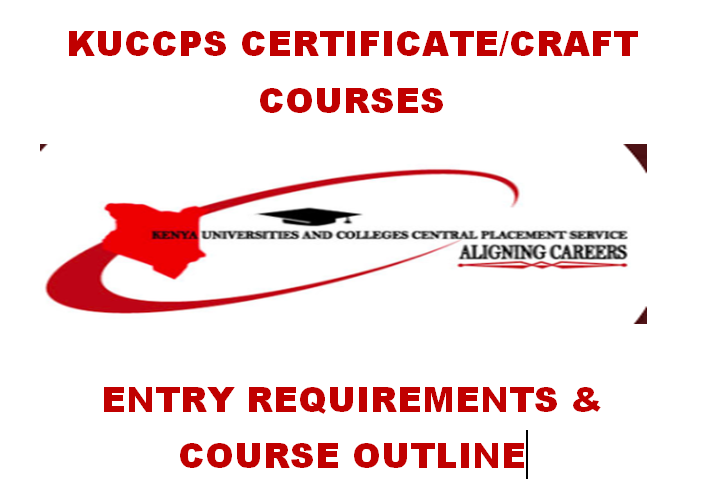Certificate in electrical and electronics engineering course outline entry requirements and all the related concerning certificate in electrical and electronics engineering. There are three types of CEE course which include CEE power option, telecommunication option and instrumentation option this guide will focus on CEE power option. The aim/focus of the certificate in electrical and electronics course is to prepare trainees and equip the learners with the skills and knowledge they will require in the industry as Electrical Engineers.. The course will impart general knowledge to enable the trainee to contribute positively to the society and prepare the trainees for further academic pursuit.
- Course duration: 2 years (2 modules)
- Examination body: KNEC
Certificate in electrical and electronics engineering Entry requirements
Certificate in electrical and electronics engineering is examined by KNEC and is offered by various approved TVETS, universities and colleges in Kenya. The entry requirements are;
- The Minimum Entry Requirements for this programme are: KCSE D Plain; Pass in Artisan Level where applicable; Any other equivalent qualification as approved by KNEC.
- Mean grades for specific KCSE subjects are not specified for certificate in in electrical and electronics engineering course
Universities and colleges offering Certificate in electrical and electronics engineering courses
Trainees wishing to enroll for a Certificate in electrical and electronics engineering course can easily choose from various institution offering the course. Full institutions are always listed on KUCCPS portal as soon as it is open for application during various intakes, for more on this just visit the KUCCPS portal here
Certificate in electrical and electronics engineering course outline
Certificate in electrical and electronics engineering is offered in 2 modules. 1 module takes a duration of 6 months then an examination is always administered at the end of each module for trainees to proceed to field attachment and eventually the next module. Attachment is always offered once module 1. The final exam is administered in module 2 for a candidate to graduate into the field market.
Career opportunities in certificate in electrical and electronics engineering
- Chief Engineering post.
- Workshop Manager post.
- Operations Manager post.
- Engineering Technologist post.
- Development and Test Engineer post.
- Electrical Product Design Engineer post.
- Project Manager post.
Once shortlisted to this course the materials requirements to enhance learning include;
- Pliers
- Multi-meter
- Dust coat
- Heavy boots-industrial boots
- Hammer
- Masking tape
- T-square
- Set squares 400 , 600 -4000
- Drawing papers A1-2
- Masking Tape 2 rolls
- Screw driver
- Tester
- 2HB Pencils
- Engineering drawing set
The following are a list of units/ subjects studied at certificate in electrical and electronics engineering module 1
- Entrepreneurship education
- ICT
- Course foundation and general information
- Technical drawing
- Mathematics 1
- Applied science
- Workshop technology
- Electrical principles 1
- Electronics
- Electrical installation technology1
- Solar installation systems
The following are a list of units/ subjects studied at certificate in electrical and electronics engineering module 2
- Life skills
- Electrical principles 2
- Communication skills
- Workshop organization and management
- Mathematics 2
- Micro electronics
- Electrical installation technology 2
- Electrical maintenance and fault diagnosis
- Electrical design estimating and tendering
- Industrial machines and control
- Business plan
- Trade project
MORE FREE CERTIFICATE& DIPLOMA COURSES KNEC PAST PAPERS:
- Diploma in ICT module 2 KNEC past papers Free download
- Diploma in ICT module 3 KNEC past papers Free download
- Certificate in ICT module 1 KNEC past papers Free download
- Certificate in ICT module 2 KNEC past papers Free download
- Diploma in Electrical and electronic engineering module 1 KNEC past papers Free download
- Diploma in electrical and electronic engineering module 2 KNEC past papers Free download
- Diploma in Human resource management module 1 KNEC past papers Free download
- Diploma in human resource management module 2 KNEC past papers Free download
- Craft in supply chain management module 1 KNEC past papers Free download
- Certificate in electrical and electronic engineering module 1 KNEC PAST PAPERS
- Certificate in electrical and electronic engineering module 2 KNEC PAST PAPERS
- Craft in supply chain management module 1 KNEC PAST PAPERS
- Diploma in building technology module 1 KNEC PAST papers
- Diploma in building and technology module 2 KNEC past papers
- Diploma in building and technology module 3 KNEC past papers
- Diploma in civil engineering module 1 KNEC PAST PAPERS
- Diploma in civil engineering module 2 KNEC PAST PAPERS
- Diploma in civil engineering module 3 KNEC PAST PAPERS
- Craft in supply chain management module 2 KNEC PAST PAPERS
- Diploma in Quantity survey KNEC past papers
- Certificate in plumbing module 1 KNEC past papers
- Certificate in building and technology module 1 KNEC past papers
- Certificate in building and technology module 2 KNEC past papers
- Diploma in social work and community development module 1 KNEC past papers
- Diploma in social work and community development module 2 KNEC past papers
- Diploma in social work and community development module 3 KNEC past papers
- Diploma in electrical and electronic engineering module 3 KNEC past papers
- Diploma in Human resource management module 3 KNEC past papers
- Diploma in supply chain management module 3 KNEC past papers
- Diploma in supply chain management module 1 KNEC past papers
- Certificate in human resource management module 2 KNEC past papers
- Diploma in supply chain management module 2 KNEC past papers
- Certificate in human resource management module 1 KNEC past papers
COURSE NOTES
- Introduction to ICT and ethics notes PDF
- Communication skills notes PDF
- Entrepreneurship notes PDF
- Economics notes PDF
- Financial accounting notes PDF
- Business law notes PDF
- Research methodology notes PDF guide
- Trade project notes & PDF sample
- Principles and practice of marketing notes PDF
- Microprocessor systems notes PDF
- Management information system MIS notes PDF
- Data communication and networking notes PDF
- Internet based programming IBP notes PDF
- Quantitative methods notes PDF
- Visual basic notes PDF
- Object oriented programming notes PDF
- Database management system notes PDF
- System analysis and design notes PDF
- Quantitative techniques notes PDF
- Principles and practice of management PPM notes PDF

